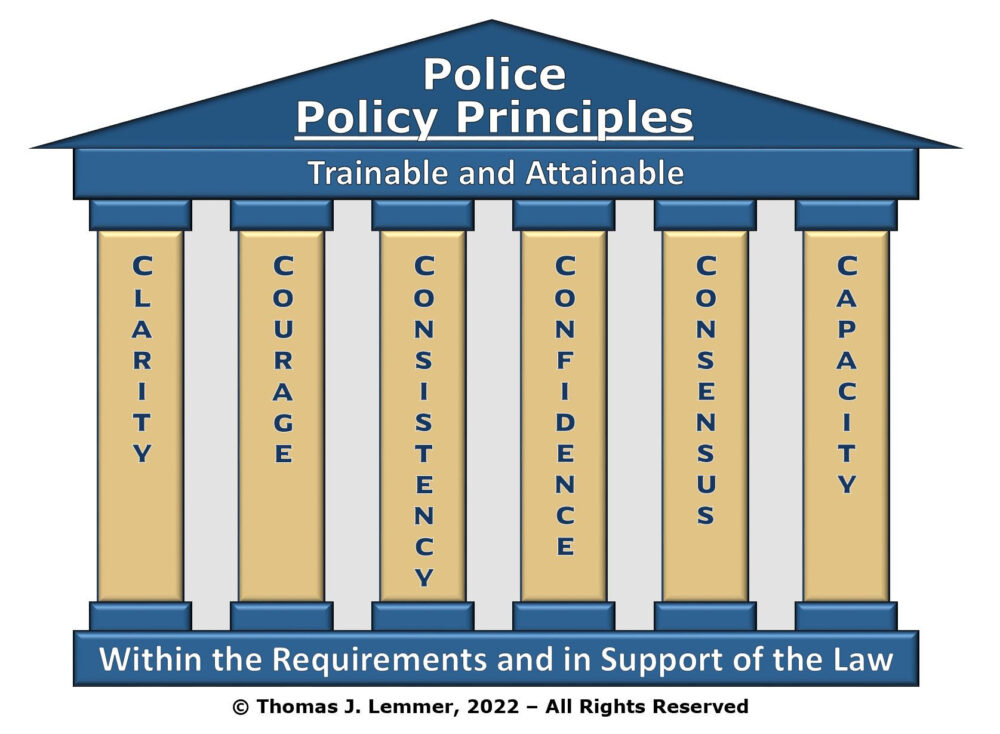By Thomas Lemmer. Published in the March 2023 issue (Volume 1, Edition 1) of the ILEETA Journal by the International Law Enforcement Educators and Trainers Association (ILEETA).
This article provides an introduction to the Principles of Policy Policy. The model was created by Thomas Lemmer, who has extensive police accountability, leadership, operations, supervisory engagement, and policy development experience. Among his many law enforcement assignments, for four years, Lemmer led the Chicago Police Department (CPD) unit responsible to coordinate the development and management of the department’s policy and procedure directives.
Click here to open in desktop full screen or your mobile PDF viewer.
Through the model, law enforcement agencies are provided key guidance on how they should approach and evaluate their policy development efforts. In meeting their mission, police agencies must ensure that their policies advance and adhere to three core principles.
First, their policies must rest upon a foundation that is both consistent with and supports the law. Second, they must be focused on setting the best possible trainable and attainable standards. Third, they must embrace six core pillars: Clarity, Courage, Consistency, Confidence, Consensus and Capacity.

Background on the Article
The article was published as a companion to Lemmer’s training presentation created for the 2023 ILEETA Annual Conference held in St.Louis, Missouri. Each year, this conference is a premier event for personnel tasked with providing training for law enforcement personnel.
During Lemmer’s time leading CPD’s Research and Development Division, significant policy advancements were made by the department. The use of force, vehicle pursuits, and constitutional policing were among the major issues addressed. Lemmer authored CPD’s first directive formalizing prohibitions against biased-based policing. Additionally, as a CPD deputy chief, he later wrote CPD’s first CompStat directive outlining key management accountability procedures, and he led the development effort for the policies governing the operations of the city’s 22 Strategic Decision Support Centers.
Learn More
Comprehensive training courses, as well as direct client consulting services in the area of policy policy development and analysis, are available from Secure 1776. Other topic areas include: community policing, juvenile crime, gangs, violence, patrol operations, internal investigations, supervisory engagement, and management accountability. Learn more by visiting our Training and Consulting Services section.
For a deeper dive into this insightful model, refer to our training insight page on this topic.
What are you thoughts on the principles of police policy and their influence on a law enforcement agency’s ability to meet its public safety mission?
We are interested in your thoughts, and invite you to comment below.


